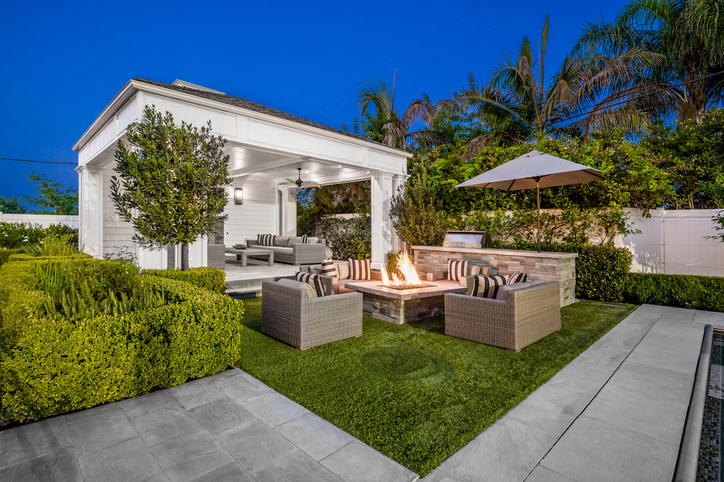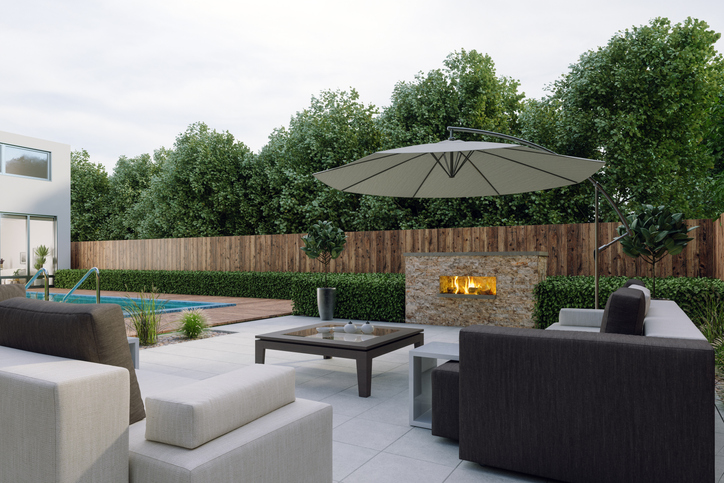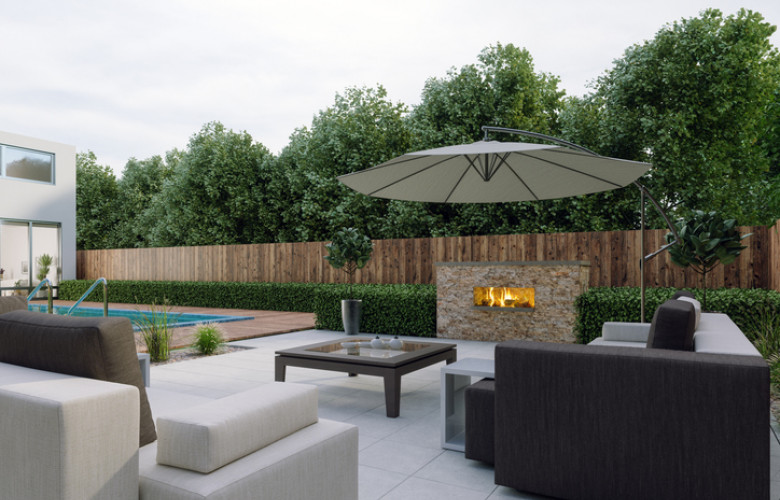The green edge: Transforming Australian properties through smart garden renovations - BMT
Contact
The green edge: Transforming Australian properties through smart garden renovations - BMT
Australians have a deep affinity for their gardens and it shows, generating approximately $7.8 billion in revenue in 2024.
Australians have a deep affinity for their gardens and it shows. In 2024, the Australian landscaping services industry generated approximately $7.8 billion in revenue.
This flourishing sector reflects the increasing popularity of sustainable gardens and outdoor living spaces. From garden design and planting to constructing retaining walls and outdoor features, homeowners and property investors alike recognise the value of enhancing outdoor areas.
Renovating a residential property’s garden can add up to 10% to the property’s value, with features like patios, outdoor kitchens and lush greenery creating visual impact and improving marketability.
Outdoor renovations are particularly appealing in Australia’s warm climate, where flexible layouts for dining, relaxation and activities align with the national lifestyle. Interactive spaces for family gatherings, play areas and even fitness zones can further enhance the use and enjoyment of shared outdoor spaces.
Creating functional outdoor rooms
One of the most impactful garden renovation trends is the creation of outdoor ’rooms‘ which are defined areas for dining, lounging and entertaining.
These spaces elevate gardens beyond mere aesthetics, offering functional extensions of the home. Timber decking, pergolas, paved courtyards and well-placed seating areas contribute to a polished, cohesive aesthetic.
For nighttime use, solar-powered or LED lights along pathways and garden beds enhance safety and ambiance, creating a welcoming atmosphere.
A new fence or natural screens like hedges or bamboo, can improve privacy while defining property boundaries. These features not only increase the utility of outdoor spaces but also provide tenants and buyers with highly desirable facilities.
Creating resilient gardens for sustainability
Australia’s unique climate and biodiversity call for gardens that can withstand harsh conditions.
Drought-tolerant plants, synthetic turf and gravel pathways are popular options for low-maintenance, visually appealing landscapes. Adding elements like shade netting or protected garden beds can help plants thrive during extreme weather.
Landscapes featuring native plants, water features and sustainable designs improve biodiversity, reduce energy costs and attract environmentally conscious buyers or tenants. Rainwater tanks and composting bins further support environmentally conscious living while aligning with Australia’s water conservation initiatives.
Smart gardening with technology
As technology continues to integrate into everyday life, smart gardening systems are transforming outdoor spaces. App-controlled irrigation systems, programmable timers and rain or soil sensors help property owners and tenants maintain lush gardens with minimal effort.
Automatic irrigation systems that adjust watering schedules based on weather conditions save water and keep plants healthy.
Smart garden technology also includes energy-efficient features like solar lighting, which reduces electricity costs and enhances the garden’s usability after dark. For property investors, these innovations can appeal to tech-savvy tenants and buyers looking for modern conveniences.

Garden design for wellbeing
Biophilic design incorporates natural elements to promote mental and physical wellbeing, which is a growing design trend in Australian gardens.
By engaging all five senses, biophilic gardens create immersive experiences that reduce stress and enhance connection to nature. Features like green walls, water features and sensory plants are particularly effective in urban spaces.
Creating edible landscapes by combining ornamental and food-producing plants, feed into the sustainable living trend while providing practical benefits and enhancing wellbeing. These gardens also support healthy lifestyles and contribute to a sense of accomplishment and mindfulness.
Maximising garden renovations for property investors
Property investors should focus on tenant needs, low maintenance choices and long-term durability when upgrading or renovating outdoor spaces.
Simple yet versatile designs that tenants can adapt to their lifestyles are highly appealing, while using weather-resistant materials minimises maintenance costs, ensuring the garden remains an asset rather than a liability.
Functional spaces like outdoor kitchens, shaded dining areas and multipurpose zones are appealing to tenants, while durable materials like weatherproof decking, synthetic turf and robust lighting fixtures are easy to maintain.
The cost of a garden renovation varies widely based on the scope of work. Smaller projects, like planting and mulching are relatively low-cost, while extensive upgrades and renovations including paving, outdoor structures and the installation of lighting and technology, require a more substantial financial investment.
However, garden renovations offer more than aesthetic and functional advantages, they can also provide significant tax benefits for property investors. Tax depreciation allows investors to claim deductions for the wear and tear of qualifying assets over time, including outdoor improvements.
It’s important to note that not all garden renovations and landscaping qualifies for depreciation and that there are distinct differences in how 'hard' and 'soft' landscaping is treated for depreciation purposes.
‘Soft’ landscaping includes elements like grass, trees, plants and soil, which are not eligible for depreciation. ‘Hard’ landscaping refers to structural components or hard-surfaced areas of the yard, which may hold depreciation value.
These can be claimed through capital works deductions or plant and equipment depreciation, depending on their classification.
Structural improvements, like retaining walls, decking, paving, pergolas and fencing qualify for Division 43 (capital works) deductions at a rate of 2.5% per year over 40 years.
Division 40 (plant and equipment) assets like irrigation systems and pool pumps, may be eligible for immediate or accelerated depreciation. These deductions not only reduce tax liabilities but also enhance the property’s rental appeal and market value.
If you would like to know more about the tax deductions available on a garden renovation contact property depreciation specialist BMT Tax Depreciation on 1300 728 726 or request a quote.

More BMT readings
Flex living in micro apartments no longer a taboo for investors - BMT
Top 5 most lucrative assets to install when renovating an investment property - BMT
Common myths in property investment - BMT
5 mistakes that first time property investors should avoid - BMT






